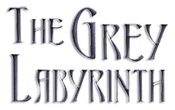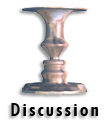|
||
The Berry NumberNo, as a matter a fact you can't. This seems to be a fairly difficult but feasible problem. In two hundred words you could describe quite large numbers. In under ten words you could easily describe an integer so large it dwarfs the number of particles in the universe. (For example, "The number of particles in the universe, squared.") On the other hand, there are certainly smaller numbers which take quite a few more words to describe. Depending upon the source you use, there are approximately 100,000 words in the English Language. With two hundred possible words, the number of combinations is staggering. It is, however, finite. The number of combinations which are non-gibberish, would be a minute fraction, but certainly too large to ever count. Nevertheless, there is a finite number of integers which can be described in two hundred words or less. Since there are an infinite number of integers, logically there must be a smallest integer which cannot be described in under two hundred English words. But there is a problem. The description of the Berry Number falls well under two hundred words as described in the problem. Therefore, if someone were to find the first integer which "could not be described in under two hundred words" this would be the Berry Number. And we have already succeeded in describing that. Any integer we claim to have the property of being the Berry Number automatically loses that property when we invoke the term. So we have both a logical demonstration of the existence and non-existence of the Berry Number, which tends to suggest a strong paradox. Many philosophers of the infinite have attempted to escape this trap by suggesting that our description of the Berry Number isn't really a description at all. Yet it certainly seems to be a description. And before being told of the paradox, most people feel reasonably certain that it must describe a single unique integer. This paradox continues to puzzle philosophers and mathematicians. It was originally posed by an obscure librarian by the name of G.G. Berry (hence the name) to Bertrand Russell, who lent it to posterity. If you are interested in the Berry Number and the paradoxes of the unnameable, I recommend Rudy Rucker's "Infinity And The Mind". |
||
|
Copyright © 1996-2026 Wx3, All Rights Reserved.
|





